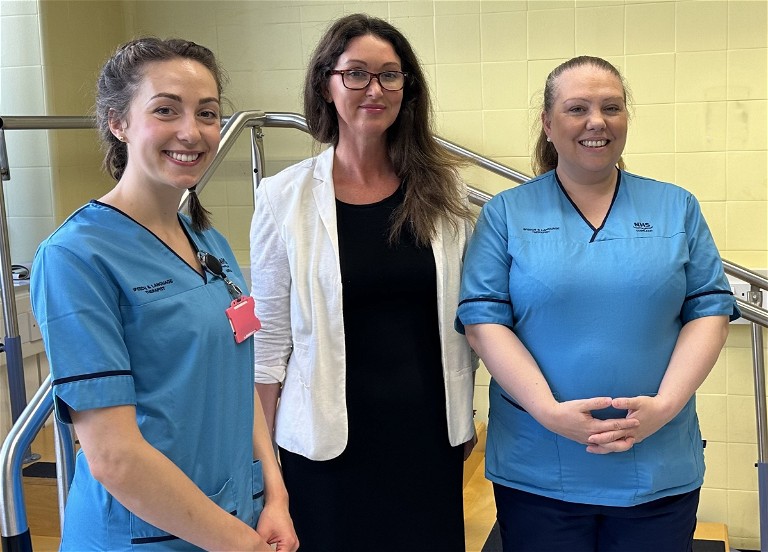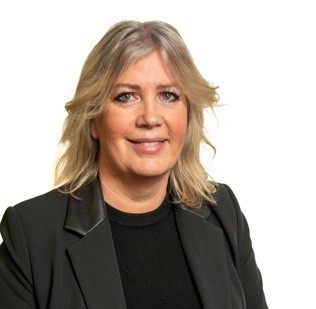Industry Insight
International Women’s Day remains a key platform to keep inspiring inclusive, innovative healthcare
Frances Ramsay from InnoScot Health discusses the way forward in closing the gender health gap
A gender health gap undoubtedly remains across the world so any opportunities to inspire and empower NHS innovators to help close that gap must be seized.
This year’s International Women’s Day (IWD) theme of ‘Inspire Inclusion’ recognised that assisting innovators to progress fresh ideas that actively target improvements in women’s health care is a significant priority. In line with the IWD aims to ‘assist women to be in a position of power to make informed decisions about their health’, the deep expertise and experience of the NHS workforce can improve how the service provides the right care for every woman.
It is globally acknowledged that while women live longer than men on average, they suffer from more chronic illnesses – that cannot continue. Nevertheless, the World Economic Forum insists that ‘by elevating the importance of women’s health, we can deliver better, more inclusive data and insights; more targeted, accessible solutions; and enable better care for women worldwide’.
IWD is also a timely opportunity to celebrate and highlight work that’s already underway in Scottish healthcare to realise true gender equality. It is certainly an area of intense focus for the Scottish Government with its Women’s Health Plan (2021-2024) setting out a bold strategy to improve health and reduce health inequalities.1 Indeed, wholeheartedly supporting and extending IWD 2024’s ‘Inspire Inclusion’ message to boost inclusivity in progressive women’s healthcare means adopting a collective push, and the Women’s Health Plan is a central tenet of that. In the UK, Scotland was the first country to have such a plan, outlining ambitious improvement and change in areas including menopause, heart health, menstrual health including endometriosis and sexual health.
It makes clear that only through better understanding of women’s health needs can we make progress on improving outcomes. Hand in hand with heightened awareness and more open discourse around mental health and well-being issues, it is an opportune moment for accelerating women’s health – and female innovators can be best placed to drive that progress.
As the IWD website states, ‘When women themselves are inspired to be included, there’s a sense of belonging, relevance and empowerment’. That’s as true now as it has been in the past.
Throughout history, innovative Scottish women have imagined, developed and perfected their creations, often sharing common attributes in doing so – from being deeply passionate about pursuing their dreams to challenging the status quo and having a strong desire to improve lives.
They have also been pivotal to the pioneering, innovation-led spirit of NHS Scotland. In 1959, the first nursing studies unit in the UK was set up at Edinburgh University, UK, thus kick-starting Scotland’s well-deserved reputation as a world leader in nursing education and research. The unit was established under Elsie Stephenson and offered an integrated degree course. A nursing research unit followed in 1971, headed by Lisbeth Hockey, and the following year Edinburgh University appointed Margaret Scott-Wright as professor of nursing. Both appointments were the first of their kind at any European university.
NHS Scotland has not just pioneered through its female staff, but also specifically on behalf of its female patients. Edinburgh-born Marie Stopes was an early innovator in birth control, opening the first clinic in London in 1921. The first Scottish family planning clinic opened four years later in Glasgow. Formal provision of free contraceptive advice and family planning services to all, irrespective of age or marital status, was then rolled out across Scotland in 1974, coming in the wake of a revolution in social attitudes triggered by the advent of the oral contraceptive pill in 1961.
Scotland has a tradition of pioneering approaches to family planning. Sir Dugald Baird in Aberdeen championed a woman’s right to ‘fifth freedom’ – to choose liberty from excessive fertility.

InnoScot Health Innovation Manager Leigh Mair with the winners of an NHS Grampian innovation competition
Over the last four years, the Scottish Government says it has invested over £26m to support health boards in developing services, including 11 new and three expanded perinatal mental health teams. Now is the time then to give innovation for women’s needs the attention it deserves to inspire the most inclusive healthcare possible, and so it is important for NHS Scotland workers to come for ward with their ideas and solutions. Indeed, it is vital to inspire fresh approaches and new thinking from all healthcare staff. Seeking out relevant partners in the journey from idea to adoption for innovation is an excellent place to start.
Commercial support helps translate ideas into products and services that can then be deployed back into the NHS, resulting in improved outcomes, better processes and a more sustainable health service. Progressive-minded NHS Scotland staff may consider ideas that leverage FemTech for neonates needing specialist care, devices for managing and monitoring pregnancy, methods of predicting complications before they happen and targeted treatments if they do arise. Equally, they could look at innovations to improve labour and delivery; improving outcomes for mothers with co-morbidities and support for women experiencing mental health problems before and after delivery.
Claims that some new mums are experiencing gaps in access to essential mental health services can also be bridged by forward-thinking ideas from NHS Scotland innovators. The Maternal Mental Health Alliance (MMHA) – a charity campaigning for better specialist services – recently claimed that while progress has been made, persistent regional variations in perinatal care mean some women in Scotland remain at risk.
Recognising Scottish Government efforts through its publication of the Mental Health and well-being strategy, MMHA chief executive Laura Seebohm said: “Mental health problems during pregnancy and after birth are common but they can also be incredibly serious. While the availability of specialist care has improved in recent years, there is still a postcode lottery. We need to see a clear action plan for how the Scottish Government intends to build on the progress made.” 2
The charity believes that around one in five women develop a mental health problem during pregnancy or within the immediate years after having a baby. It is undoubtedly an area with massive opportunity for innovation and breakthroughs that help to reduce inequalities in women’s and pregnancy health, providing the right care for every woman and baby, regardless of location, income or ethnicity.
The impact of good pregnancy and perinatal health across Scotland is not to be underestimated, and it is a key focus for many in the industry. When pregnancies and very early childhood are free of complications, it means that children are better equipped to achieve good health outcomes over the course of their lives, creating positive knock-on effects for the health of their families for generations to come. That, in turn, means a positive effect on Scottish society and the population’s wider well-being. It is also a burgeoning area for innovators with genomics and artificial intelligence (AI) increasingly evidencing promise in helping to bridge gaps in unmet need.
Now is the time to give mental health innovation the attention and investment it deserves to ensure we’re creating a Scotland where every pregnancy is as safe and healthy as possible.
At a challenging time for the NHS, we need visionary innovators of all backgrounds to share their diverse ideas and help to ease pressures – that’s never been more important. We must equip our brightest health service innovators with the tools they need to succeed, while encouraging a new generation to come forward and pursue their ambitions. That means welcoming innovation from all – but there is always work to be done in encouraging ideas from those who may feel marginalised or ill-equipped to share thoughts that depart from the norm. Those are often the most valuable. Differing views on the same problem can be the ones that unlock vital healthcare solutions. That is why women’s perspectives are incredibly important to us, and we as an organisation unconditionally embrace healthcare equity.
References
1. Visit gov.scot/publications/womenshealth-plan/pages/1/
2. Visit: gov.scot/publications/mentalhealth-wellbeing-strategy/
1. Visit gov.scot/publications/womenshealth-plan/pages/1/
2. Visit: gov.scot/publications/mentalhealth-wellbeing-strategy/

Frances Ramsay has been working within the health service since leaving school when she started her nurse training qualifying in 1991. Her background is within acute care, and she has experience within both NHS Scotland and England having worked in the John Radcliffe teaching hospital in Oxford, UK. Frances joined the medical device industry as a clinical nurse specialist working in an education capacity, both advising on, and helping, research projects. Her interest in developing products and working closely with key clinical leaders has since helped to commercialise products. Most recently, Frances has worked as innovation manager at InnoScot Health.